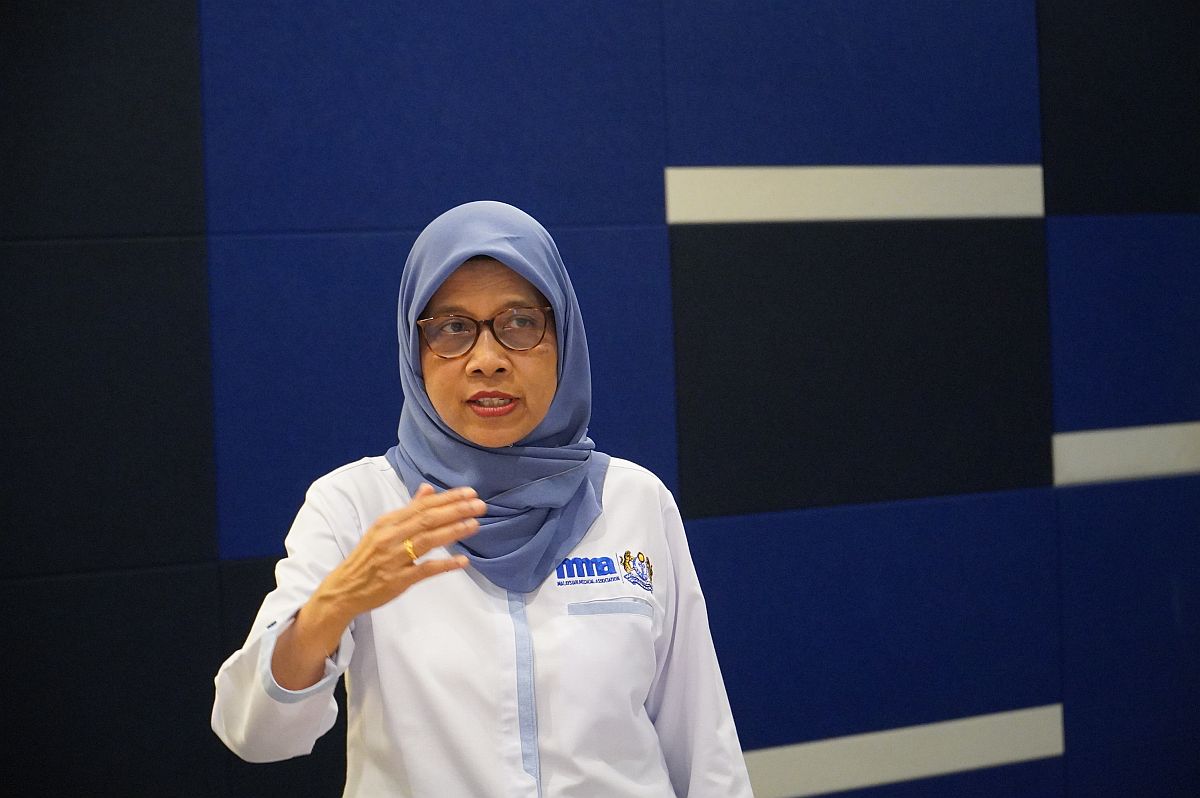The Malaysian Medical Association (MMA) wants the government to allow Medical Officers (MOs) to decide if they wish to apply for the Hadiah Latihan Persekutuan (HLP) to specialise through the parallel pathway.
Currently, under the present system, all MOs in public health care, whether they choose the MMED (local Master’s) programme or the parallel pathway (Royal Colleges) programme to specialise, are required to apply for HLP, which is a government scholarship.
The current system is limiting, and the HLP should not be mandatory for the parallel pathway, as there are doctors who are willing to self-fund their specialist training in view of the lack of available openings, uncertainty, and limitations in attaining the HLP.
We have been informed that doctors who qualify and have applied for specialist training have been waiting between one to four years for the HLP to enter their specialisation training. Such issues are affecting the production of specialists the country so desperately needs.
Malaysia is experiencing an acute shortage in specialists across the board. There are less than 13,000 specialists serving the country, with only around 9,000 serving in public health care. It should be noted that over 70 per cent of the population depend on the public health care system for their needs.
Malaysia’s population-to-specialist ratio is currently at 10,000: 4, which is starkly different from the Organisation for Economic Co-operation and Development (OECD) average of 10,000: 14.3.
The government has set a target of 28,000 specialists by 2030. With the current number of specialists being produced (estimated at around 1,000 each year), it is unlikely that we will achieve the target.
Going forward, we wish to once again thank the health minister for pledging his commitment to resolving the issues in specialist training. However, all parties involved, namely the Public Service Department (JPA), Malaysian Medical Council (MMC), Ministry of health (MOH), and universities need to commit to working together towards the necessary improvements to the system for the sake of the future of our junior doctors, and by extension, the country’s health care system.
We also wish to state full support for the harmonisation of the National Postgraduate Medical Curriculum (NPMC) to ensure the highest quality in specialist training.
What Is The HLP?
The HLP is a government scholarship for MOs wishing to specialise.
Under the current system, since 2021, applicants for both the MMED (local Master’s programme) and the parallel pathway (Royal Colleges) programmes are required to apply for the HLP scholarship.
If the scholarship is approved, the government will bear the full costs for those opting for the MMED programme, or bear the costs for the second and third examination, only once, for those taking the parallel pathway.
The HLP requires all trainees under the scholarship to serve a bond duration of seven years and fulfil extended years of training. Furthermore, there are higher bond costs and reduced chances of transfer under the HLP scholarship.
To qualify for the HLP scholarship, candidates are required to do well in the MedEx exam, which costs RM800 for the MMED programme or pass the first paper for the parallel pathway programme (the cost varies, depending on the specialisation).
However. they may be ineligible for the scholarship if they have insufficient years of service. Openings for the HLP are reportedly limited, its selection criteria are unclear, and there is even an age limit for applications.
Only recently was the HLP for the parallel pathway programme introduced. Following the introduction of this regulation, MOs now must compete to be enrolled into the parallel pathway programme.
The openings available are reportedly limited, and many MOs are unable to enrol into this programme due to this new change.
Previously, candidates were able to sit for examinations and progress in their training with no limitation in number of candidates. With the HLP in place, those above a certain age are not able to consider post-graduate training.
Despite this, there is a significantly higher preference among MOs for the parallel pathway programme.
Due to the limitation of candidates enrolled into this programme (requirement for HLP), some doctors have left government service for greener pastures abroad, out of sheer frustration with the system.
Dr Azizan Abdul Aziz is the president of the Malaysian Medical Association.
- This is the personal opinion of the writer or publication and does not necessarily represent the views of CodeBlue.




